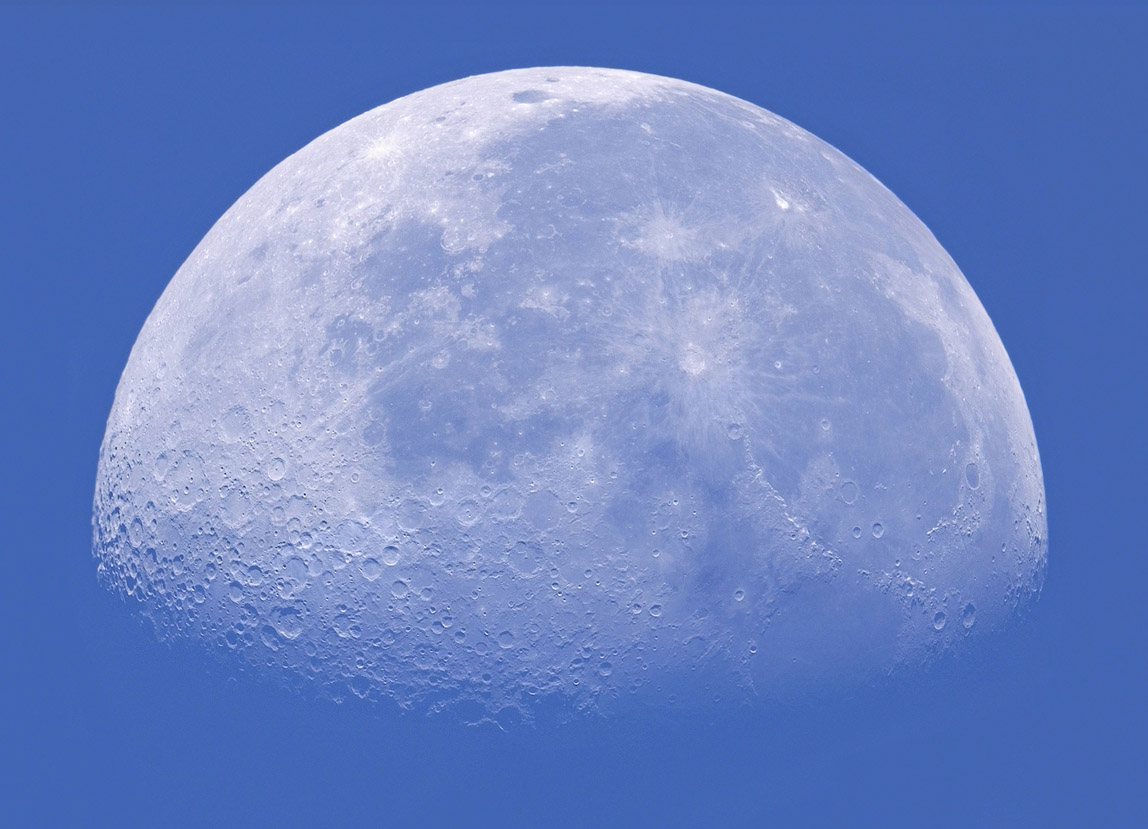
image by Alan Friedman
Many people fail to notice the Moon in the daytime sky, but in fact it is frequently visible during the day, but has low contrast and doesn’t attract attention. LPOD has featured a number of previous daytime images, demonstrating that we have more opportunities for appreciating our pocked orb than even most lunar observers probably realize. Perhaps daytime study of the Moon can make astronomy a normal schooltime activity. And now Alan has taken an image with high resolution more typical of an excellent evening view - in fact, if you adjust the contrast you can darken the blue to a steely hue, as if it were a great evening view. Here it is in higher resolution, and if you click the link you can see the bright International Space Station streaking across this dark Moon.
Note: I missed LPOD yesterday, and in fact missed most of the day, for I spent 27 straight hours at my office completing a proposal to manage NASA’s national intern program. Seeing the Moon at any time of day is pretty hard from indoors.
Technical Details:
Sept 2, 2007. Astro-Physics 155edfs and DMK 41AF02 camera with IR filter. Color data captured with a Nikon D1x. Processed in Adobe Photoshop.
Related Links:
Alan’s website.
COMMENTS?
Register, and click on the Discussion tab at the top of the page.



